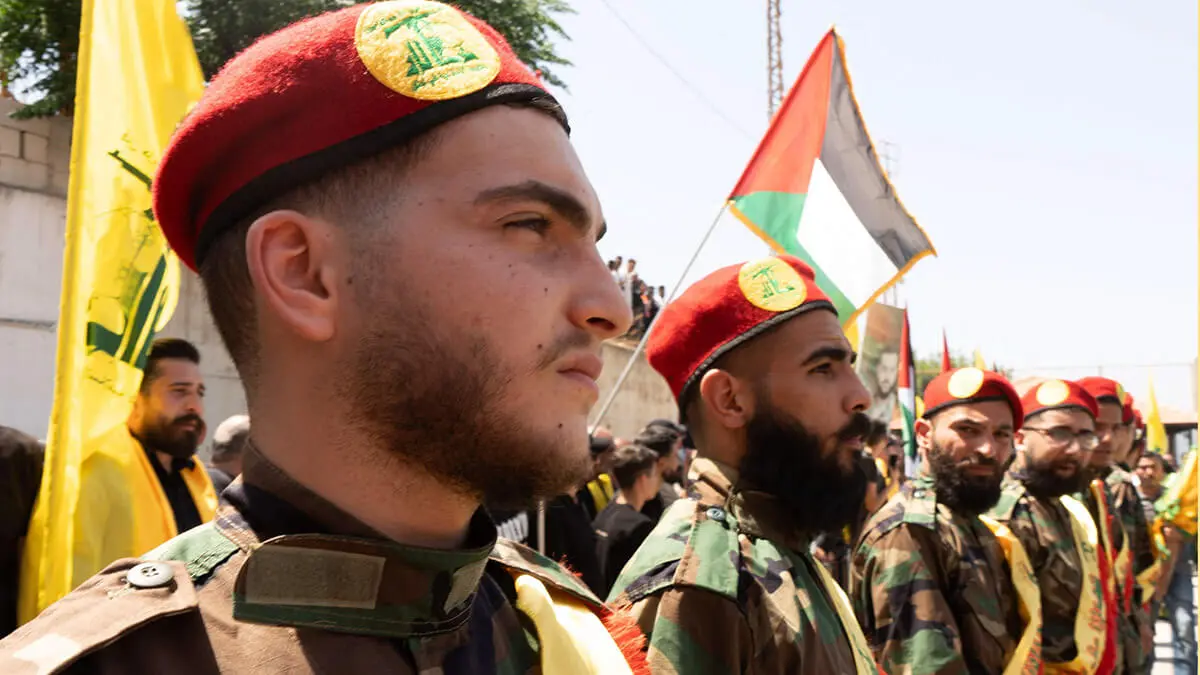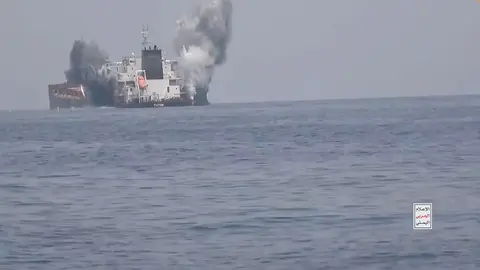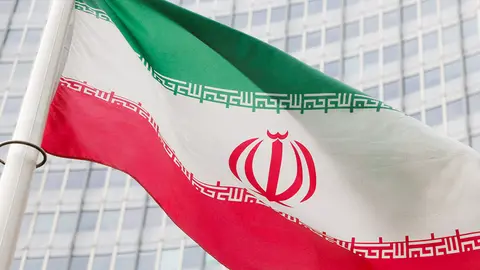Iran’s and Israel’s stakes in Lebanon

The worst thing about the Israeli war on Gaza, from the Iranian point of view, is that it has gone on for too long. The magnitude of Palestinian casualties or the extent of the destruction caused by the daily criminal Israeli bombing of Gaza is the last thing that could matter to the Iranians. The high toll and the sight of the never-ending devastation are actually factors that can help Iran better achieve its goal of incitement thorough the war. What is not in Iran’s interest is the Israelis’ putting aside any consideration of time. Israel is clearly willing to pay the price, no matter how steep it is, in terms of soldiers’ lives, economic cost and their country’s international reputation.
This consideration was hardly expected nor indeed was the Israelis’ patience in dealing with the northern front. They let Hezbollah engage in posturing while its fighters launched a string of rockets to show solidarity with Gaza’s population. The Israelis ignored hints that the militant Lebanese party, namely Iran, was not informed of the Hamas plan to carry out the “Al-Aqsa Flood” operation.
Hezbollah’s goal was to emerge victorious from the war, without paying the price for this. It wanted to avoid being dragged into too many confrontations with the Israeli military in southern Lebanon/northern Israel, or losing too many of its troops, especially senior commanders. Hassan Nasrallah had experienced first-hand the dangers inherent in escalation with Israel during the 2006 war, to which he referred once by saying, “If I just knew.”
But Israel knows. It now views the situation with Hezbollah in a different light, having seen the danger that accrues from leaving military assets in the hands of an ideologically-driven faction, as the recent Hamas operation has demonstrated.
Hezbollah talks openly about amassing weapons, especially those provided by Iran and which include more advanced arms than the Katyusha rockets that were famous during the 2006 war. The more time passes, the more danger escalates in the north. Tensions in northern Israel may not turn into a full-fledged war, but one can argue that all the militias, missiles and drones are not being mobilised by Hezbollah for naught. Whether its purpose is to launch a sequel to “Al-Aqsa Flood” or not, the Hamas lesson in Gaza is not missed by Israelis. Even the lowest ranking Israeli staff officer believes the situation cannot continue.
It can be said that Israel reacted to the initial phases of escalation in a way desired by Hezbollah. Nasrallah and his main sponsor, Iran, were gratified by the appearance of being involved while talk prevailed during the first few weeks of the Gaza war about “unity of the battlefields”. But this “unity of battlefields” soon became muddled as the extent of the devastating Israeli actions in Gaza became clear. The pace of Hezbollah’s missile launches declined for a while. Then token missile attacks evolved into attempts to respond to the painful Israeli retaliatory blows which targeted the party’s infrastructure and a large segment of its leadership.
Even before directing its attacks at Hezbollah’s elite forces and targeting the party’s senior military echelons, Israel dealt morale-sapping blows to Hezbollah in Lebanon, with the most serious being the killing of the head of Hamas in the West Bank, Saleh Al-Arouri, in the heart of the southern suburbs of Beirut, Hezbollah’s stronghold.
More discreetly, Israel was planning further painful strikes against Iranians, the sponsors of Hezbollah and Hamas. The matter reached its climax with the strike against the Iranian consulate in Damascus and the killing of the commander of the Revolutionary Guard Corps in charge of operations in Syria and Lebanon, General Mohammad Reza Zahedi. The Iranian response further deepened the predicament of Tehran’s allies in the region. None of the hundreds of Iranian ballistic missiles, cruise missiles and drones was able to hit a single Israeli target. They were instead neutralised and shot down through an Israeli-American-Western coordinated effort. In strategic malice, Israel responded only by launching one single missile without an exploding warhead against an Iranian anti-missile unit. The aim was to send a message to Iran that Israel was capable of responding, but as long as the Iranian attack did not result in any casualties, there was no need for a lethal response.
Iranian Supreme Guide Ayatollah Ali Khamenei emphasised to Revolutionary Guard generals that the significance of the response lay in the principle, not in deed. Then Iran fell silent. We no longer heard about its solidarity with the Palestinians amid tragedy. Tehran’s official statements no longer differed from those coming out of Arab capitals it accused of normalisation with Israel. Then, came the death of Iranian President Ibrahim Raisi, which paved the way for early elections to choose a successor. The Iranians acted as if the incident distracted them from the plight of the Palestinians.
This does not mean that Iran has turned the page on confrontation with Israel. This confrontation, or rather its exploitation by Tehran, has been a major tool of Iran’s expansionist designs in the region. Under the pretext of solidarity with the Palestinians, as they are being slaughtered daily by the Israel’s relentless war machine, Iran has justified its ideological and militia encroachment in the region.
Therefore, when it became apparent to Tehran that Israel would not tolerate Hezbollah’s continued amassing of the means of war on its border (to further the Iranian project, not the “liberation of Palestine”), Iran waved the threat of mobilising loyalist militias from Iraq, Yemen, Afghanistan and Pakistan to lend support to Hezbollah and prevent the Israelis from dealing a major blow to its Lebanese proxy.
Hezbollah is the foremost Iranian ideological project in the region. Lebanon’s geographical proximity to Israel provides Tehran with a geographically convenient base for escalation with Israel when necessary. Any major strike of the scope of the Israeli bombing of Gaza, which as described by Israeli Defence Minister Yoav Galant as returning Lebanon to the Stone Age, would represent an important strategic setback to the Iranian hegemonic project in the region.
Iran knows that Israel is planning a major blow against Hezbollah. Its leaders realise, ironically, that what prevents the Israelis from hitting Hezbollah is the US opposition to the outbreak of a regional war. From this perspective, the United States had convinced Israel to use a missile without an exploding warhead against an anti-missile site deep inside Iran. Indeed, while Washington appeared to be pressuring Binyamin Netanyahu’s government to avoid the invasion of Rafah, it was blocking the transfer of important additional ammunition that might be used to attack Hezbollah in southern Lebanon. What now protects Hezbollah in Lebanon, and even prevents the wide targeting of pro-Iran militias, is the American-Western-Arab desire to prevent the eruption of an all-out war. The same countries which are accused of normalisation and of remaining silent about the Israeli massacres against the Palestinians are actually also those preventing the expansion of the war to Lebanon, Iraq and Iran.
They are the ones who suggested a limited response formula to the Houthi attacks on maritime navigation in the Red Sea and the Gulf of Aden. This formula confined the operations carried out by the Western naval coalition to protecting the waterways. It is the West’s Arab allies who have established red lines for international cooperation to protect maritime navigation in order not to target the Houthi leaders in Yemen or their Iranian advisors. Even the growing Arab rapprochement with the Assad regime is at the heart of mechanisms to mitigate escalation and prevent Syria from becoming an arena of confrontation between Iran and Israel.
The prospective Israeli strike would clip the wings of Hezbollah, but leave it with enough power to preserve its political and security presence in Lebanon even if without the daily bragging about missiles and drones, or Iran replenishing its arsenal. Part of the discussed arrangements was the change in the Arab narrative about Hezbollah, no longer considered a “terrorist organisation” by the Arab League. But the most important part of the arrangements has been driven by Iranian cunning, which seeks to avoid sapping Hezbollah’s power and weaken pro-Iranian militias as this could undermine Iranian influence, in Iraq and beyond.
When Israel assassinated Hezbollah’s highest ranking field commander, Talib Sami Abdullah (Abu Talib), a few days ago, the party distributed a picture of Abu Talib kissing the head of the Iranian commander of the Quds Force, Qassem Soleimani, who was himself assassinated by the United States in Baghdad. A picture which illustrates well the Iranians’ ability to adapt to incurred losses as long as the main goal of the confrontation, namely wielding influence, remains intact. Americans strike blows but they forget about them, and their presidents change.
The Israelis, in a remarkable sharing of the Iranian logic of setting goals and patiently striving to reach them, likewise neither abandon nor forget their goals. The coming war is a struggle for memories as well. What is certain is that what is happening to the Palestinians in Gaza now is the first item that will omitted from the memories of both sides.
Dr Haitham El-Zobaidi is the executive editor of Al Arab Publishing Group.



